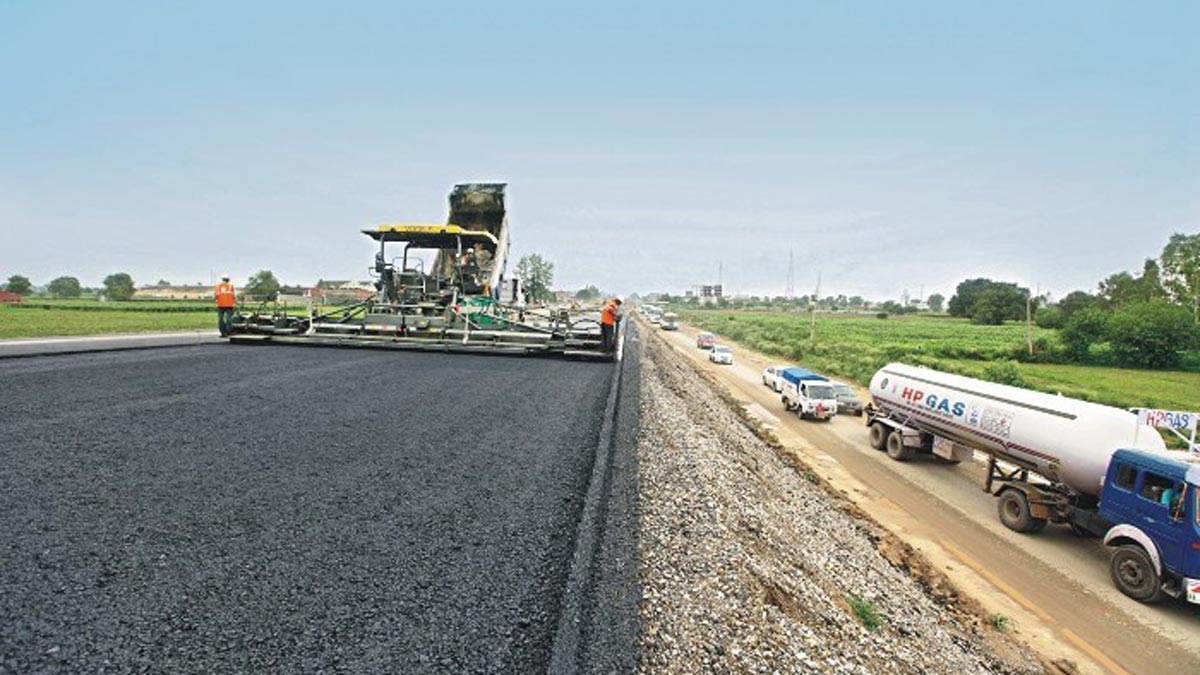- FG Rehabilitates Adamawa, Borno, Kogi, Niger Roads
The Federal Government on Sunday said it would spend the sum of N22,699,176,016.86 on the rehabilitation of Mayo Belwa-Jada-Ganye-Toungo road in Adamawa State.
It also said its attention had been drawn to embankment and road washouts at five different locations in four northern states as a result of the ongoing rainfall, adding that the seasonal occurrences arose from heavy downpours around this period of the year.
The Minister of Power, Works and Housing, Babatunde Fashola, who was represented by the Minister of State 1, Mustapha Shehuri, at the a road reconstruction ceremony in Mayo Belwa town, disclosed that the 112km Belwa-Jada-Ganye-Toungo road in Adamawa State was due for rehabilitation, having been built since 1999.
Fashola, according to a statement from Federal Ministry of Power, Works and Housing on Sunday, stated that the road, which was characterised with failed sections, potholes, alligator cracks, depressions and washouts at the edges, was an important economic route linking and passing through the agriculturally predominant towns of Mararaba, Jamtari, Jada, Dashen, Ganye and Toungo.
He said the road also leads to the neighbouring Taraba State.
The minister said the contract had a completion period of 36 months, with a provision for the reconstruction of the 112km road to a required 7.3 metres carriageway width and 2.75 metres shoulders.
He said the carriageway would be overlaid with 60mm asphalt concrete binder course, 40mm asphalt concrete wearing course, with pavement of 200mm thick and 200mm stone base.
Other ancillary benefits to road users on that corridor, according to Fashola, are stone pitching, kerbs and chutes to avoid washouts; kilometre posts; and most importantly, road signs to give direction and make driving less cumbersome. The contract was awarded to Messrs Triacta Nigeria Limited, the statement added.
The FMPWH also stated that the attention of the minister was recently drawn to embankment and road washouts at five different locations in Adamawa, Kogi, and Niger states.
It said the embankment washouts included the Km7+250 from Bida, along the recently awarded Lambata-Lapai-Bida road project to Messrs CGC Nigeria Plc, located immediately after the Nigerian Cereal Institute in Niger State.
The contractor has commenced immediate mobilisation to site on the directive of the ministry and will commence emergency reinstatement work by August 26th, 2018 to enable free flow of traffic,” the ministry said.
It added, “Also in Niger State is the Armco Pipe collapse at Km16 along Bida-Minna road, Niger State. The Niger State Government has commissioned a federal contractor on that corridor, Messrs Triacta Nig. Plc to restore the anomaly for safe passage.”
The ministry said another washout was identified at Kwaita bridge along Abuja-Lokoja carriageway, where the subsisting contractor, Reynolds Construction Company, had been directed to commence immediate remedial work.
It said the embankment washout at the Bayo Local Government Area on the road linking Gombe-Biu in Borno State was also identified, where FIK Construction Company on the corridor had been directed to move in and commence palliative measures.

 Forex2 weeks ago
Forex2 weeks ago


 Naira2 weeks ago
Naira2 weeks ago
 Naira4 weeks ago
Naira4 weeks ago
 Billionaire Watch1 week ago
Billionaire Watch1 week ago
 Company News4 weeks ago
Company News4 weeks ago




 Naira2 weeks ago
Naira2 weeks ago




 Naira1 week ago
Naira1 week ago




 Naira4 weeks ago
Naira4 weeks ago






















